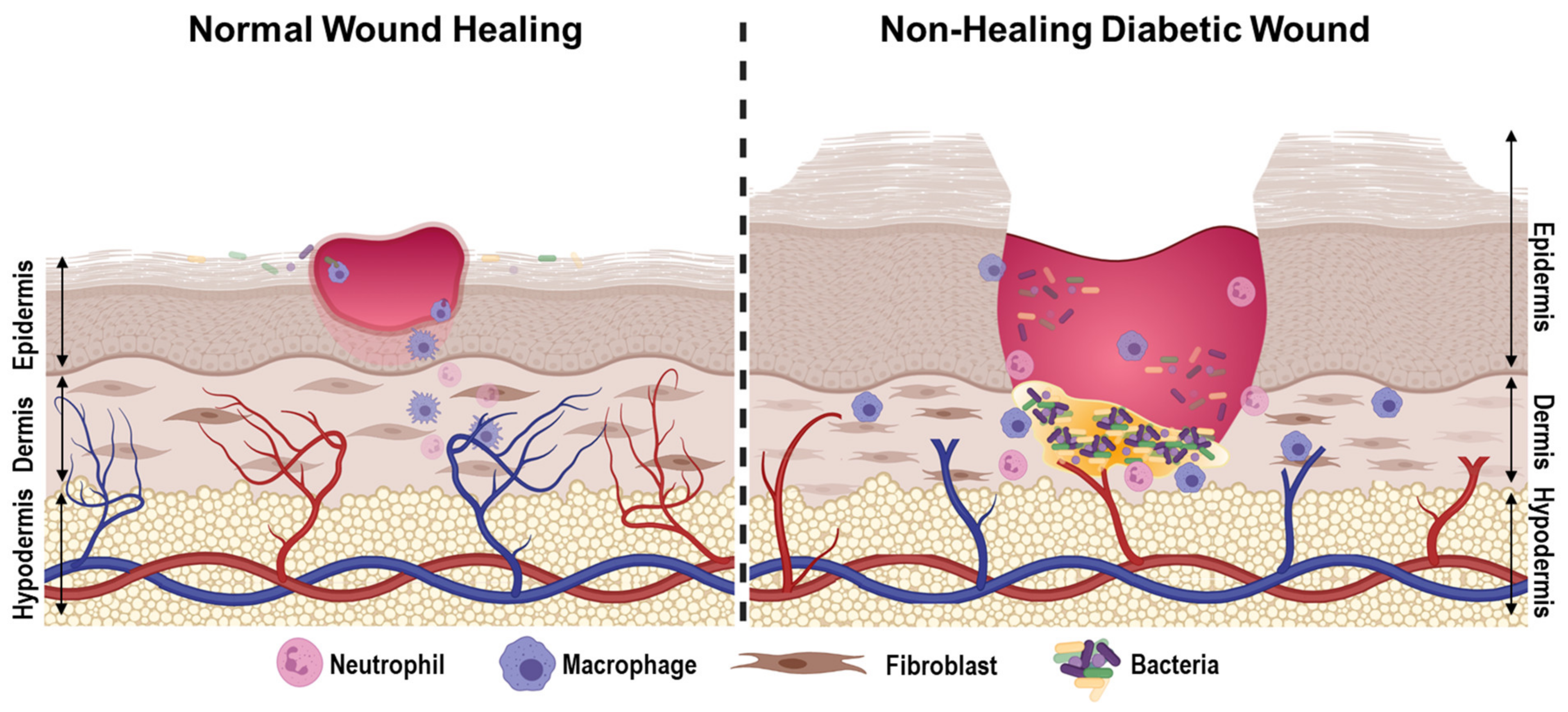.png)
Imagine your body as a car and glucose (a type of sugar) as the fuel that keeps it running. Every time you eat, your food gets broken down into glucose, which enters your bloodstream. Now, to get this fuel into your cells where it’s needed, you need a key. This key is a hormone called insulin, produced by the pancreas. In a healthy body, insulin acts like a well-oiled key, unlocking the doors of your cells to let glucose in.
But with diabetes, things get a bit tricky. It’s like having a rusty key or no key at all. In Type 1 diabetes, your body loses the key entirely because the immune system mistakenly attacks the insulin-producing cells in the pancreas. In Type 2 diabetes, the key is there, but it doesn’t fit well anymore because the body has become resistant to insulin. Without a working key, glucose builds up in the bloodstream, leading to high blood sugar levels. Over time, this can cause a variety of health problems, much like how a car would struggle and eventually break down without the right fuel.
Why and How Diabetes Happens?
In simple terms, diabetes occurs because the body cannot properly handle glucose, which is a crucial fuel for our cells. Let's delve a bit deeper into the scientific aspects, explained in layman's terms:
Insulin Production and Function:
- Normal Function: When we eat, our body breaks down food into glucose, which enters the bloodstream. The pancreas then releases insulin, which helps glucose enter the cells to be used for energy.
- In Diabetes: This process is disrupted. Either the pancreas doesn't produce enough insulin (Type 1 diabetes) or the body becomes resistant to insulin's effects (Type 2 diabetes).

Types of Diabetes:
- Type 1 Diabetes: The body's immune system mistakenly attacks and destroys the insulin-producing cells in the pancreas. This usually happens in children and young adults, and these individuals need to take insulin daily.
- Type 2 Diabetes: The body becomes resistant to insulin, and the pancreas can't keep up with the increased demand for insulin. This type is more common in adults, particularly those who are overweight or inactive.
- Gestational Diabetes: This occurs during pregnancy when the body cannot produce enough insulin to meet the extra needs. It usually goes away after childbirth but increases the risk of developing Type 2 diabetes later in life.
Click here to read more about Type 1 and Type 2 diabetes.
How does Diabetes Affect the Mind, Body, and Soul?
Living with diabetes impacts every aspect of a person's life. Here's how it affects the body, mind, and soul:
Body:
- Energy Levels:
- High blood sugar levels can leave you feeling tired and weak because your cells aren’t getting the energy they need. This constant fatigue can make daily tasks seem daunting.
- Heart and Blood Vessels:
- Diabetes can damage the blood vessels, leading to serious complications such as heart disease, stroke, and poor circulation. High blood sugar levels can cause the blood vessels to become narrow and hard, restricting blood flow.
- Kidneys:
- Over time, high blood sugar can damage the kidneys' filtering system, leading to kidney disease or even kidney failure. This is because the kidneys have to work extra hard to filter the excess glucose from the blood.
- Eyes:
- Diabetes can cause vision problems and even blindness by damaging the blood vessels in the eyes. This condition is known as diabetic retinopathy.
- Nerves:
- High blood sugar levels can damage the nerves, a condition known as neuropathy. This can cause pain, tingling, and loss of sensation, especially in the feet and hands.
- Skin:
- People with diabetes are more prone to skin infections and slow-healing wounds. High blood sugar levels can weaken the immune system, making it harder for the body to fight off infections.

Mind:
- Mental Health:
- Living with diabetes can be stressful and may lead to anxiety and depression. The constant need to monitor blood sugar levels and manage the condition can be overwhelming.
- Cognitive Function:
- High blood sugar levels over time can affect brain function, leading to memory issues and cognitive decline. Studies have shown a link between diabetes and an increased risk of dementia.
- Mood Swings:
- Fluctuating blood sugar levels can cause irritability and mood swings. Low blood sugar levels, in particular, can cause symptoms like nervousness, anxiety, and confusion.

Click here to read about how stress causes diabetes.
Soul:
- Emotional Well-being:
- Managing a chronic condition like diabetes can be emotionally draining. It can lead to feelings of frustration, sadness, or hopelessness. The constant need to be vigilant about diet, exercise, and medication can take a toll on one's emotional health.
- Spiritual Health:
- Dealing with diabetes might impact one's spiritual well-being. For some, it could lead to a search for deeper meaning and understanding, while for others, it might challenge their sense of peace and acceptance. It’s important to find ways to maintain a positive outlook and stay connected to your inner self.
- Quality of Life:
- The constant monitoring and lifestyle adjustments required for diabetes management can affect overall quality of life. It can make one feel restricted and limit their sense of normalcy and freedom.

Conclusion
Living with diabetes is a complex journey that affects the body, mind, and soul. While it presents challenges, understanding the condition is the first step towards effective management. By working closely with healthcare providers and adopting healthy lifestyle changes, individuals with diabetes can lead fulfilling lives and prevent or delay complications. Remember, you're not alone, and with the right support, you can thrive with diabetes.
Reference
- https://www.medicalnewstoday.com/articles/7504
- https://www.healthline.com/health/diabetes
- https://www.who.int/news-room/fact-sheets/detail/diabetes
- https://pmc.ncbi.nlm.nih.gov/articles/PMC2613584/
- https://www.niddk.nih.gov/health-information/diabetes/overview/symptoms-causes
- https://www.diabetes.org.uk/diabetes-the-basics/differences-between-type-1-and-type-2-diabetes
- https://www.mayoclinic.org/diseases-conditions/diabetes/in-depth/diabetes-treatment/art-20044084
- https://www.mayoclinic.org/diseases-conditions/diabetes/symptoms-causes/syc-20371444
- https://my.clevelandclinic.org/health/body/22601-insulin


.png)


